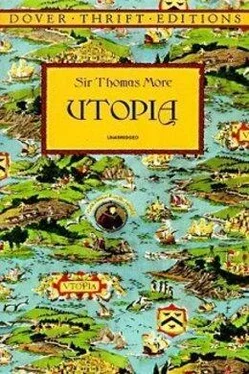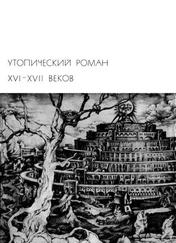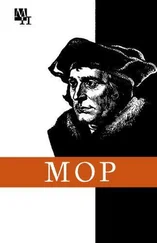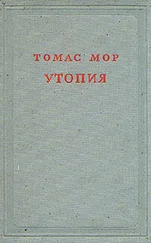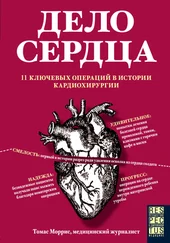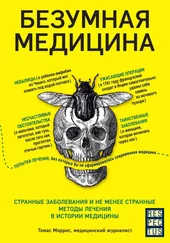"They offer up no living creature in sacrifice, nor do they think it suitable to the Divine Being, from whose bounty it is that these creatures have derived their lives, to take pleasure in their deaths, or the offering up their blood. They burn incense and other sweet odours, and have a great number of wax lights during their worship, not out of any imagination that such oblations can add anything to the divine nature (which even prayers cannot do), but as it is a harmless and pure way of worshipping God; so they think those sweet savours and lights, together with some other ceremonies, by a secret and unaccountable virtue, elevate men's souls, and inflame them with greater energy and cheerfulness during the divine worship.
"All the people appear in the temples in white garments; but the priest's vestments are parti–coloured, and both the work and colours are wonderful. They are made of no rich materials, for they are neither embroidered nor set with precious stones; but are composed of the plumes of several birds, laid together with so much art, and so neatly, that the true value of them is far beyond the costliest materials. They say, that in the ordering and placing those plumes some dark mysteries are represented, which pass down among their priests in a secret tradition concerning them; and that they are as hieroglyphics, putting them in mind of the blessing that they have received from God, and of their duties, both to Him and to their neighbours. As soon as the priest appears in those ornaments, they all fall prostrate on the ground, with so much reverence and so deep a silence, that such as look on cannot but be struck with it, as if it were the effect of the appearance of a deity. After they have been for some time in this posture, they all stand up, upon a sign given by the priest, and sing hymns to the honour of God, some musical instruments playing all the while. These are quite of another form than those used among us; but, as many of them are much sweeter than ours, so others are made use of by us. Yet in one thing they very much exceed us: all their music, both vocal and instrumental, is adapted to imitate and express the passions, and is so happily suited to every occasion, that, whether the subject of the hymn be cheerful, or formed to soothe or trouble the mind, or to express grief or remorse, the music takes the impression of whatever is represented, affects and kindles the passions, and works the sentiments deep into the hearts of the hearers. When this is done, both priests and people offer up very solemn prayers to God in a set form of words; and these are so composed, that whatsoever is pronounced by the whole assembly may be likewise applied by every man in particular to his own condition. In these they acknowledge God to be the author and governor of the world, and the fountain of all the good they receive, and therefore offer up to him their thanksgiving; and, in particular, bless him for His goodness in ordering it so, that they are born under the happiest government in the world, and are of a religion which they hope is the truest of all others; but, if they are mistaken, and if there is either a better government, or a religion more acceptable to God, they implore His goodness to let them know it, vowing that they resolve to follow him whithersoever he leads them; but if their government is the best, and their religion the truest, then they pray that He may fortify them in it, and bring all the world both to the same rules of life, and to the same opinions concerning Himself, unless, according to the unsearchableness of His mind, He is pleased with a variety of religions. Then they pray that God may give them an easy passage at last to Himself, not presuming to set limits to Him, how early or late it should be; but, if it may be wished for without derogating from His supreme authority, they desire to be quickly delivered, and to be taken to Himself, though by the most terrible kind of death, rather than to be detained long from seeing Him by the most prosperous course of life. When this prayer is ended, they all fall down again upon the ground; and, after a little while, they rise up, go home to dinner, and spend the rest of the day in diversion or military exercises.
"Thus have I described to you, as particularly as I could, the Constitution of that commonwealth, which I do not only think the best in the world, but indeed the only commonwealth that truly deserves that name. In all other places it is visible that, while people talk of a commonwealth, every man only seeks his own wealth; but there, where no man has any property, all men zealously pursue the good of the public, and, indeed, it is no wonder to see men act so differently, for in other commonwealths every man knows that, unless he provides for himself, how flourishing soever the commonwealth may be, he must die of hunger, so that he sees the necessity of preferring his own concerns to the public; but in Utopia, where every man has a right to everything, they all know that if care is taken to keep the public stores full no private man can want anything; for among them there is no unequal distribution, so that no man is poor, none in necessity, and though no man has anything, yet they are all rich; for what can make a man so rich as to lead a serene and cheerful life, free from anxieties; neither apprehending want himself, nor vexed with the endless complaints of his wife? He is not afraid of the misery of his children, nor is he contriving how to raise a portion for his daughters; but is secure in this, that both he and his wife, his children and grand–children, to as many generations as he can fancy, will all live both plentifully and happily; since, among them, there is no less care taken of those who were once engaged in labour, but grow afterwards unable to follow it, than there is, elsewhere, of these that continue still employed. I would gladly hear any man compare the justice that is among them with that of all other nations; among whom, may I perish, if I see anything that looks either like justice or equity; for what justice is there in this: that a nobleman, a goldsmith, a banker, or any other man, that either does nothing at all, or, at best, is employed in things that are of no use to the public, should live in great luxury and splendour upon what is so ill acquired, and a mean man, a carter, a smith, or a ploughman, that works harder even than the beasts themselves, and is employed in labours so necessary, that no commonwealth could hold out a year without them, can only earn so poor a livelihood and must lead so miserable a life, that the condition of the beasts is much better than theirs? For as the beasts do not work so constantly, so they feed almost as well, and with more pleasure, and have no anxiety about what is to come, whilst these men are depressed by a barren and fruitless employment, and tormented with the apprehensions of want in their old age; since that which they get by their daily labour does but maintain them at present, and is consumed as fast as it comes in, there is no overplus left to lay up for old age.
"Is not that government both unjust and ungrateful, that is so prodigal of its favours to those that are called gentlemen, or goldsmiths, or such others who are idle, or live either by flattery or by contriving the arts of vain pleasure, and, on the other hand, takes no care of those of a meaner sort, such as ploughmen, colliers, and smiths, without whom it could not subsist? But after the public has reaped all the advantage of their service, and they come to be oppressed with age, sickness, and want, all their labours and the good they have done is forgotten, and all the recompense given them is that they are left to die in great misery. The richer sort are often endeavouring to bring the hire of labourers lower, not only by their fraudulent practices, but by the laws which they procure to be made to that effect, so that though it is a thing most unjust in itself to give such small rewards to those who deserve so well of the public, yet they have given those hardships the name and colour of justice, by procuring laws to be made for regulating them.
Читать дальше
Конец ознакомительного отрывка
Купить книгу
